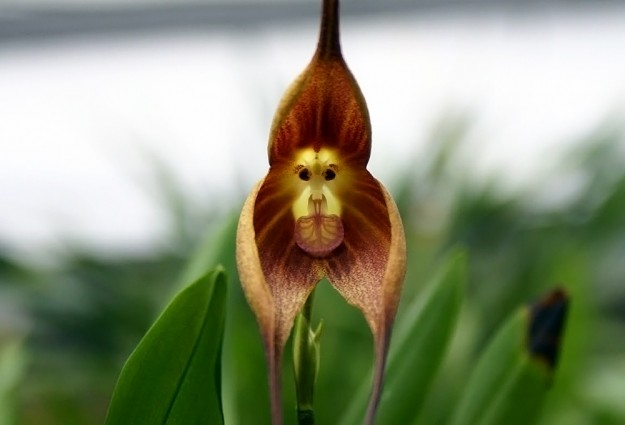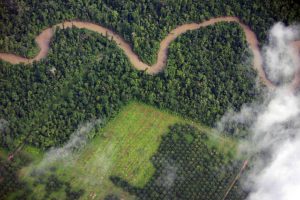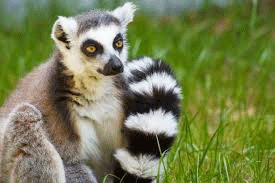
Future of Conservation Part 1: How to remain optimistic
As I look at conservation programs around the world, it is hard not to worry about whether enough is being done and whether current strategies will be effective. For orchids in Ecuador, to lemurs in Madagascar, habitats are shrinking at an alarming rate. Where there were tens of thousands, and in some cases hundreds of thousands, acres of rainforest and other natural habitats, currently only a small percentage of those areas are under active protection. What are the survival prospects of our species, or any species, alive on this planet today?
An article I read recently stated it something this way:
You can be optimistic about the future but then you can’t acknowledge history; or you can be pessimistic about the future and acknowledge history.
So, how can we be optimistic in the face of facts? Consider some of the challenges we face:
- As I write this article, rainforests are being destroyed at the rate of 150 acres a minute. By the time I finish writing and editing, 23,000 acres of rainforest will be gone from the Earth.
- We live in a world with 7 billion people, all of them needing to be fed. In the process of producing enough food we have lost half of the earth’s topsoil, due to poor agricultural practices.
- Almost daily we see photographs of the polar ice caps which are melting irreversibly. The reduction in the ice mass has two disastrous consequences. First, it brings about a rise in sea level, which reduces the amount of land on which people can live and grow food. Second, a smaller ice mass at the poles means fewer of the sun’s rays being reflected, resulting in a rise in ocean temperatures and increasing the oceans’ acidification levels, which are already near the tipping point.
 Suddenly the history of the Mayan or the Easter Island civilizations come to mind. Both of these societies continued to destroy their ecological foundations, even when they could see what they were doing.
Suddenly the history of the Mayan or the Easter Island civilizations come to mind. Both of these societies continued to destroy their ecological foundations, even when they could see what they were doing.
And yet I remain optimistic, while at the same time acknowledging what history has shown us. We can’t change this history, but we can define the future. Being optimistic means we recognize that the arc of history can be bent. In fact, change is a normal part of nature and society. I know from my work as an engineer, one has to be optimistic that something can always be done better and smarter just by looking, learning, and evaluating the possibilities. I spent thirty years of my first career doing just that.
 Were the people on the island of Madagascar wrong in planting rice farms, thereby pushing the endangered lemurs into ever vanishing habitats? These farmers needed to feed themselves and the local population. Their focus was not on saving the lemurs. Whether what they were doing was good or bad is a matter of perspective, and that perspective can change over time. Today, many of these farmers, through education, are working hard to deter poaching in an effort to protect the lemur.
Were the people on the island of Madagascar wrong in planting rice farms, thereby pushing the endangered lemurs into ever vanishing habitats? These farmers needed to feed themselves and the local population. Their focus was not on saving the lemurs. Whether what they were doing was good or bad is a matter of perspective, and that perspective can change over time. Today, many of these farmers, through education, are working hard to deter poaching in an effort to protect the lemur.
And we should not forget that history also has had major successes. As an example, the allocation and development of our national park system did not come about from a profit-and-loss analysis. It came from a love and reverence for nature. I don’t actually know the history and it probably wasn’t this idyllic, but I do know that people back then lived closer to nature, with a deeper appreciation for nature, and a healthy respect for how nature works. The fact remains that our parks exist today, and are very important to our society and culture. They are part of what is best about America. They are helping to bring the newer generations closer to nature. They just could be the catalyst for the changes needed now and in the future.
So I am most optimistic that as we see weather patterns changing and more coastal damage occurring, we will develop a deeper appreciation of, as well as a new-found respect for, nature. And we will learn to accept the fact that we can’t sustain growth indefinitely. We will find that we can be happy and enjoy our lives by being less focused on material acquisition, and more dedicated to building relationships and community.
Indeed, as we become more aware of nature we will change our behavior and our path of history. We can be optimistic, we can acknowledge history, we can learn from it, and we can change the direction in which we are headed. We, all of us, have to decide whether we are willing to do it soon enough.
This is the future of conservation — not just for orchids, but for our environment and for our species.![]()